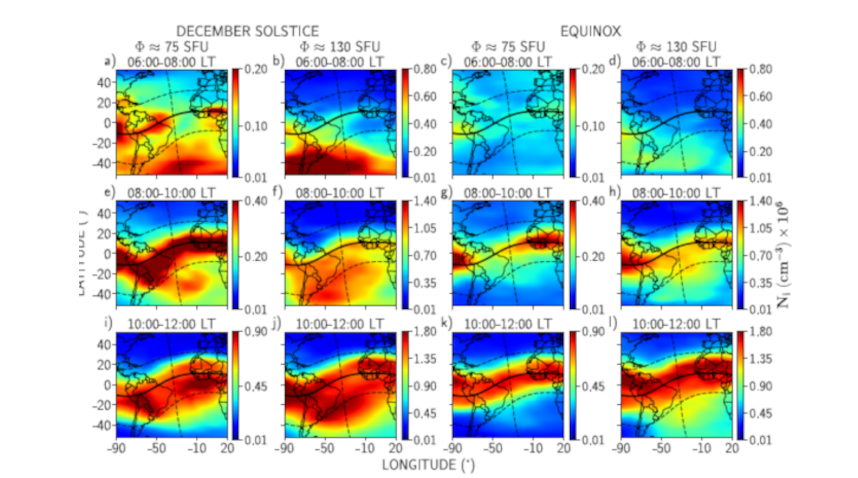Doctoral student Sophia Rodrigues Laranja published an article in the prestigious Journal of Geophysical Research: Space Physics, edited by the American Geophysical Union, co-authored with her advisor, prof. Marco Antonio Ridenti, from PG-FIS, his co-supervisor prof. Jayr de Amorim Filho, also from PG-FIS, and his internship supervisor abroad, prof. Bela Fejer of Utah State University.
In 2022, she began an extensive analysis of an 11-year database of measurements from an instrument aboard the International Space Station. This instrument is called the Floating Potential Measument Unit, capable of performing in situ measurements of the state of the ionosphere at an altitude of 400 km.
These measures have never been systematically and extensively studied. With the supervision of professor Bela Fejer, during an internship at Utah State University, the student was able to identify several already known characteristics of the climatological variability of the ionosphere, in addition to several anomalies that are little discussed in the literature and are still the focus of scientific debate .
As an example, the study establishes a bulge in the plasma density profile in the south Atlantic sector, during the night, at the December solstice and at the equinoxes. This characteristic suggests that there is eastward transport of the plasma formed during the day in the region of another anomaly, known as the Weddell Sea Anomaly, located west of the South American sector.
This work was developed in the context of the ITA Physics Postgraduate Program (PG-FIS). The area of concentration of this work is FIS-C, Non-Linear Dynamics and Complex Systems. For those interested in pursuing a Masters or PhD in the area of Space Physics, the PG-FIS has several interesting lines of research in the area.

